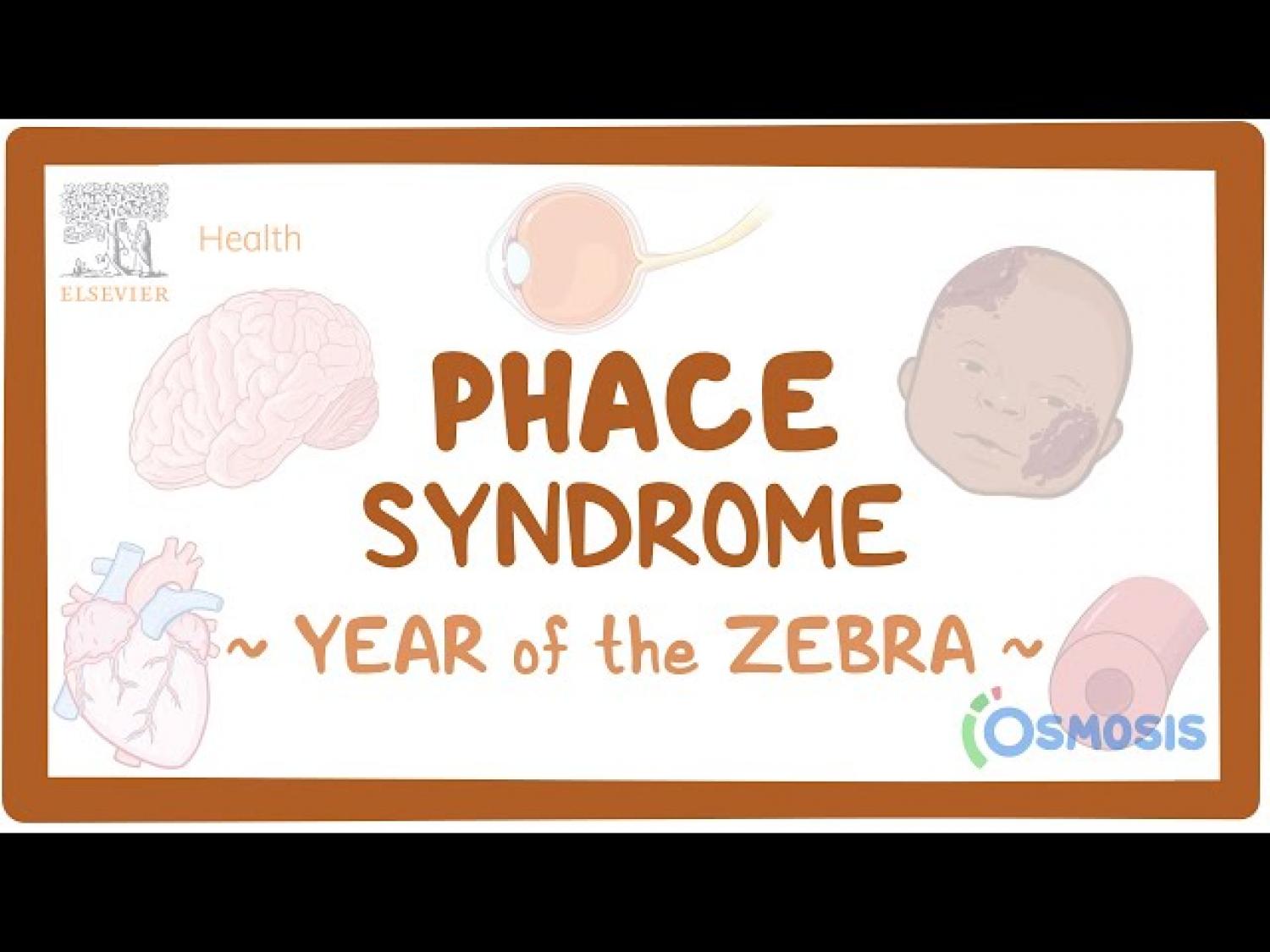
Rare Disease Education: PHACE Syndrome
Editor: Kelsey LaFayette, DNP, RN, FNP-C
"When you hear hoofbeats, think of horses, not zebras,” is a common saying in medical education that means you should think of common conditions first, instead of rare ones, in making a diagnosis. “Rare” is a relative term though and about 7,000 rare, or "zebra," conditions affect more than 350 million individuals worldwide. Although these conditions collectively affect an enormous number of people, each of these conditions individually is rare enough that it can be difficult to secure the resources to study them and to develop treatments and cures. Likewise, awareness of rare conditions may be low and health care professionals may not be familiar with their signs and symptoms making it more difficult to reach a correct diagnosis and provide effective treatments.
To increase knowledge about rare conditions, Osmosis and the National Organization for Rare Diseases (NORD) have collaborated on an initiative to bring education and awareness to the public. We are excited to be a part of this initiative because we believe everyone deserves quality health care, no matter how rare their condition.
Zebra of the Week: PHACE Syndrome
What do the words NASA, LASER, and SCUBA have in common? These ubiquitous terms are all abbreviations formed from the initial letters of other words: acronyms.
Similarly, PHACE Syndrome is actually an acronym for some of the varied presentations of the disease: Posterior fossa (brain) abnormalities, Hemangioma (a vascular birthmark), Arterial cerebrovascular anomalies, Cardiac and aortic defects, and Eye anomalies. The presentation of this disease is varied, with different symptom combinations from person to person. PHACE Syndrome affects children, with a predilection for females.
Today’s Zebra is so rare that its incidence and prevalence are not known. Both diagnosis and treatment are geared towards the specific symptoms experienced by patients. To get a clearer picture of PHACE Syndrome, watch the dedicated Osmosis video.
Meet the faces of PHACE
Watch Anna Kerr PhD introduce the PHACE Photovoice project that aims a spotlight at the inspirational PHACE individuals, their caregivers, and their supporters. Anna Kerr PhD is a researcher at Ohio University and the secretary of the PHACE Syndrome Community organization. They are united by their desire to find a cure for this condition, but until that time comes, they find hope and support from one another. See the results of the project and read their unique stories
More Information on PHACE Syndrome
Signs & Symptoms, Causes and Diagnosis
